This post was written by Tim Urban and originally published on Wait But Why.
I woke up this morning to a text. It was a link:
“optimistic-people-have-one-thing-common-always-late.”
Intriguing. Nothing’s better than the headline: “The reason people are [bad quality that describes you] is actually because they’re [good quality].”
I got to reading. And as it turns out, according to the article, late people are actually the best people ever. They’re optimistic and hopeful:
“People who are continuously late are actually just more optimistic. They believe they can fit more tasks into a limited amount of time more than other people and thrive when they’re multitasking. Simply put, they’re fundamentally hopeful.”
They’re big-thinking:
“People who are habitually late don’t sweat over the small stuff, they concentrate on the big picture and see the future as full of infinite possibilities.”
Late people just get it:
“People with a tendency for tardiness like to stop and smell the roses…life was never meant to be planned down to the last detail. Remaining excessively attached to timetables signifies an inability to enjoy the moment.”
By the end of the article, I had never felt prouder to be a chronically late person.
But also, what the hell is going on? Late people are the worst. It’s the quality I like least in myself. And I’m not late because I like to smell the roses or because I can see the big picture or because the future is full of infinite possibilities. I’m late because I’m insane.
So I thought about this for a minute, and I think I figured out what’s going on. The issue is that there are two kinds of lateness:
1. OK lateness. This is when the late person being late does not negatively impact anyone else — like being late to a group hangout or a party. Things can start on time and proceed as normal with or without the late person being there yet.
2. Not-OK lateness. This is when the late person being late does negatively impact others — like being late to a two-person dinner or meeting or anything else that simply can’t start until the late party arrives.
John Haltiwanger’s Elite Daily article is (I hope) talking mostly about OK lateness. In which case, sure, maybe those people are the best, who knows.
But if you read the comment section under Haltiwanger’s article, people are furious with him for portraying lateness in a positive light. And that’s because they’re thinking about the far less excusable not-OK lateness.
1. OK lateness. This is when the late person being late does not negatively impact anyone else — like being late to a group hangout or a party. Things can start on time and proceed as normal with or without the late person being there yet.
2. Not-OK lateness. This is when the late person being late does negatively impact others — like being late to a two-person dinner or meeting or anything else that simply can’t start until the late party arrives.
John Haltiwanger’s Elite Daily article is (I hope) talking mostly about OK lateness. In which case, sure, maybe those people are the best, who knows.
But if you read the comment section under Haltiwanger’s article, people are furious with him for portraying lateness in a positive light. And that’s because they’re thinking about the far less excusable not-OK lateness.
All of this has kind of left me with no choice but to take a quick nine-hour break from working on a gargantuan SpaceX post to discuss not-OK late people.
When it comes to people who are chronically not-OK late, I think there are two subgroups:
Group 1: Those who don’t feel bad or wrong about it. These people are assholes.
Group 2: Those who feel terrible and self-loathing about it. These people have problems.
Group 1 is simple. They think they’re a little more special than everyone else, like the zero-remorse narcissist at the top of Haltiwanger’s article. They’re unappealing. Not much else to discuss here.
Punctual people think all not-OK late people are in Group 1 (as the comments on this post will show) — because they’re assuming all late people are sane people.
When a sane person thinks a certain kind of behavior is fine, they do it. When they think it’s wrong, they don’t do it. So to a punctual person — one who shows up on time because they believe showing up late is the wrong thing to do — someone who’s chronically late must be an asshole who thinks being late is OK.
But that’s misunderstanding the entire second group, who, despite being consistently late, usually detest the concept of making other people wait. Let call them CLIPs (Chronically Late Insane Persons).
While both groups of not-OK late people end up regularly frustrating others, a reliable way to identify a Group 2 CLIP is a bizarre compulsion to defeat themselves — some deep inner drive to inexplicably miss the beginning of movies, endure psychotic stress running to catch the train, crush their own reputation at work, etc., etc. As much as they may hurt others, they usually hurt themselves even more.
I spent around 15% of my youth standing on some sidewalk alone, angrily kicking rocks, because yet again, all the other kids had gotten picked up and I was still waiting for my mom. When she finally arrived, instead of being able to have a pleasant conversation with her, I’d get into the car seething. She always felt terrible. She has problems.
My sister once missed an early morning flight, so they rescheduled her for the following morning. She managed to miss that one too, so they put her on a flight five hours later. Killing time during the long layover, she got distracted on a long phone call and missed that flight too. She has problems.
I’ve been a CLIP my whole life. I’ve made a bunch of friends mad at me, I’ve embarrassed myself again and again in professional situations, and I’ve run a cumulative marathon through airport terminals.
When I’m late, it’s often the same story, something like this:
I’ll be meeting someone, maybe a professional contact, at, say, a coffee place at 3:00. When I lay out my schedule for the day, I’ll have the perfect plan. I’ll leave early, arrive early, and get there around 2:45. That takes all the stress out of the situation, and that’s ideal because non-stressful commutes are one of my favorite things. It’ll be great — I’ll stroll out, put on a podcast, and head to the subway. Once I’m off the subway, with time to spare, I’ll take a few minutes to peruse storefronts, grab a lemonade from a street vendor, and enjoy New York. It’ll be such a joy to look up at the architecture, listen to the sounds, and feel the swell of people rushing by — oh magnificent city!
All I have to do is be off the subway by 2:45. To do that, I need to be on the subway by 2:25, so I decide to be safe and get to the subway by 2:15. So I have to leave my apartment by 2:07 or earlier, and I’m set. What a plan.
Here’s how it’ll play out (if you’re new to WBW, you’re advised to check this out before proceeding):
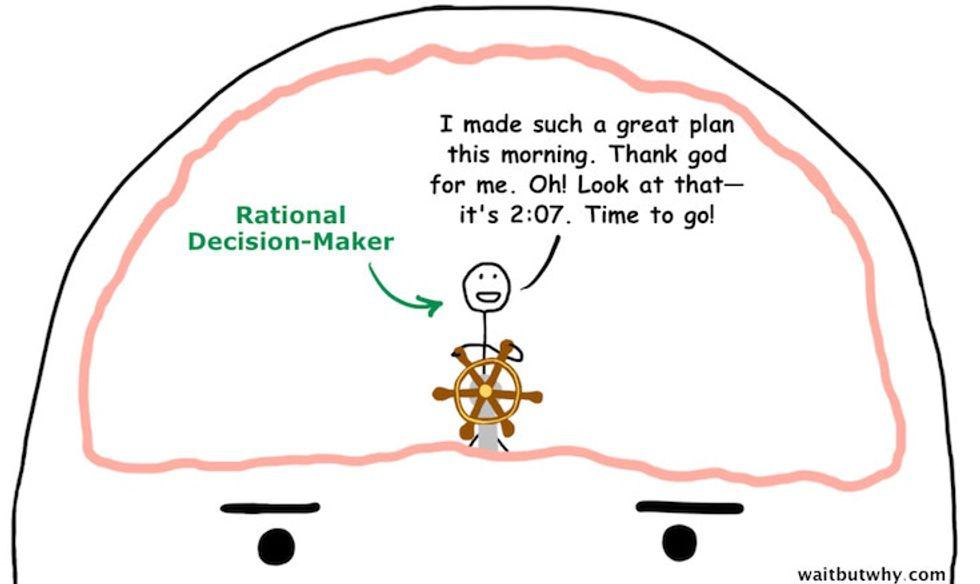
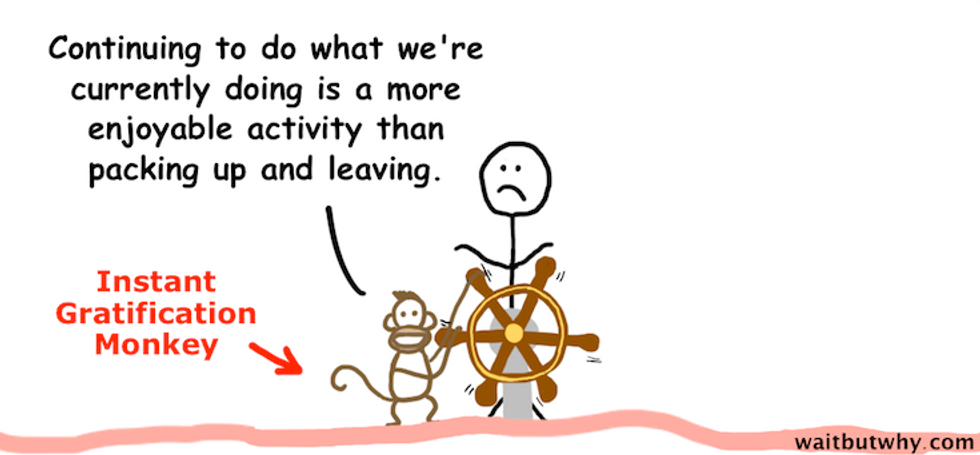
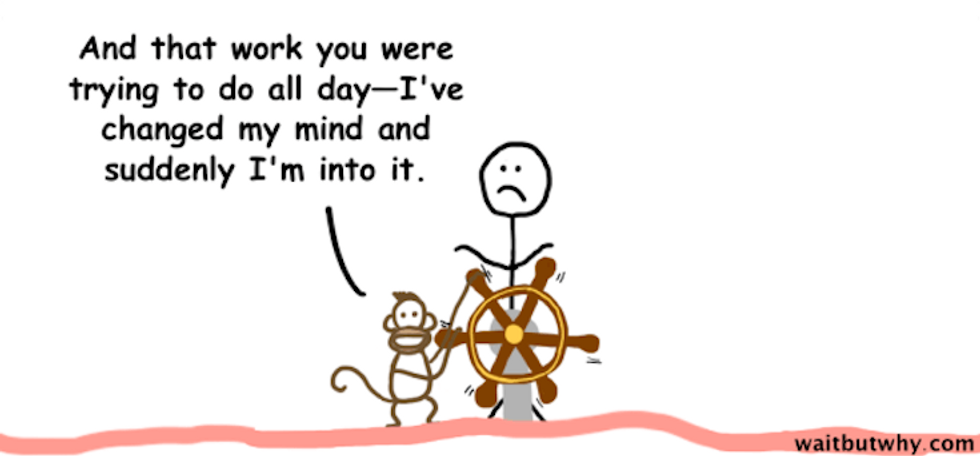
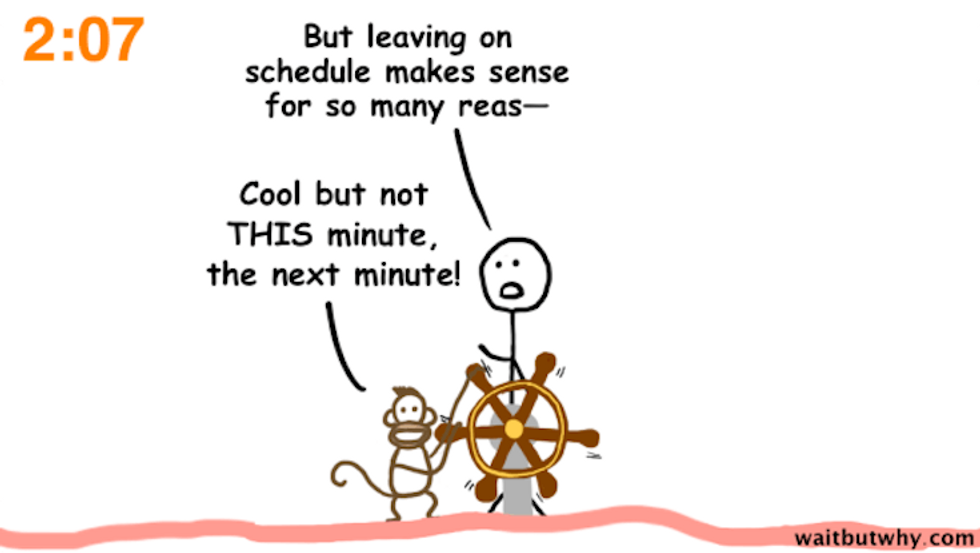
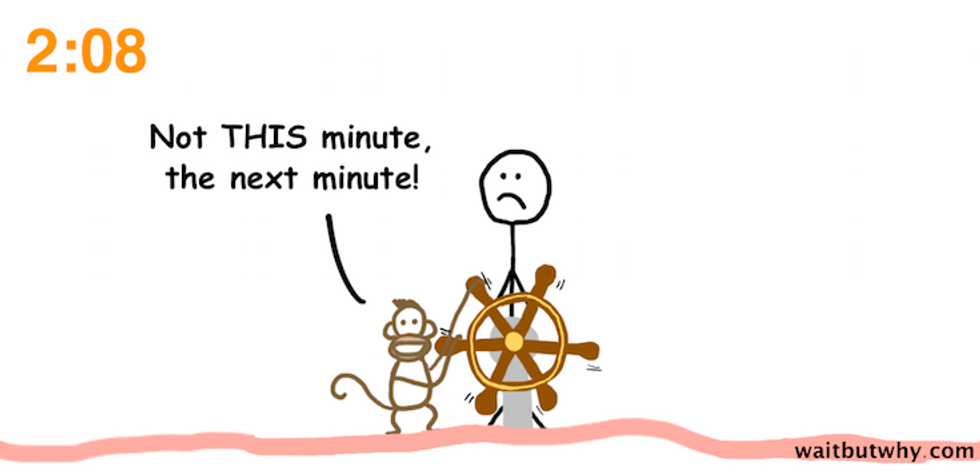
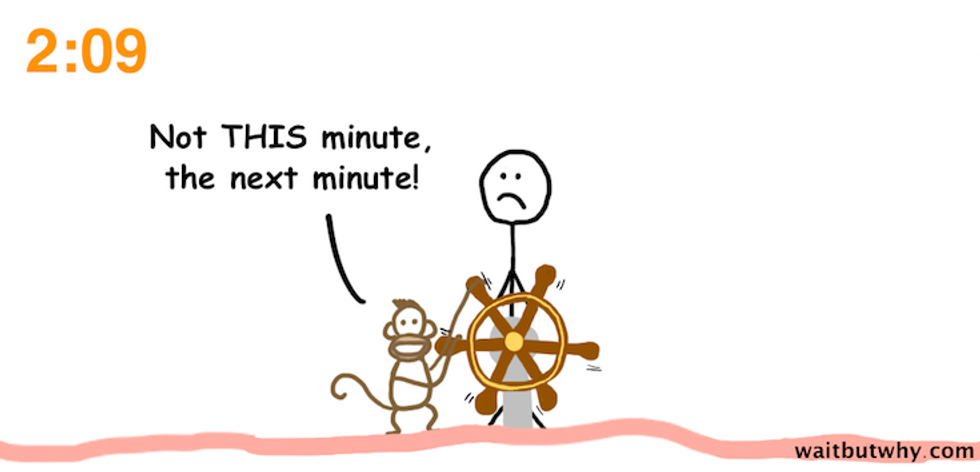
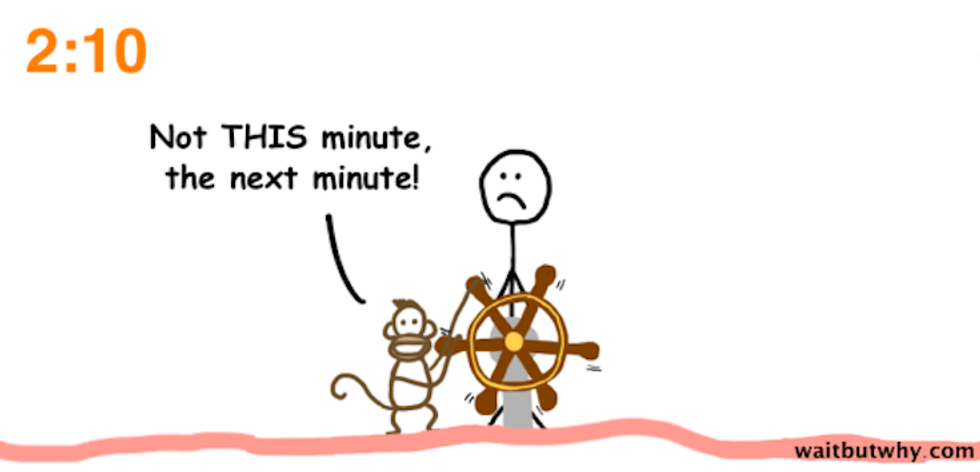
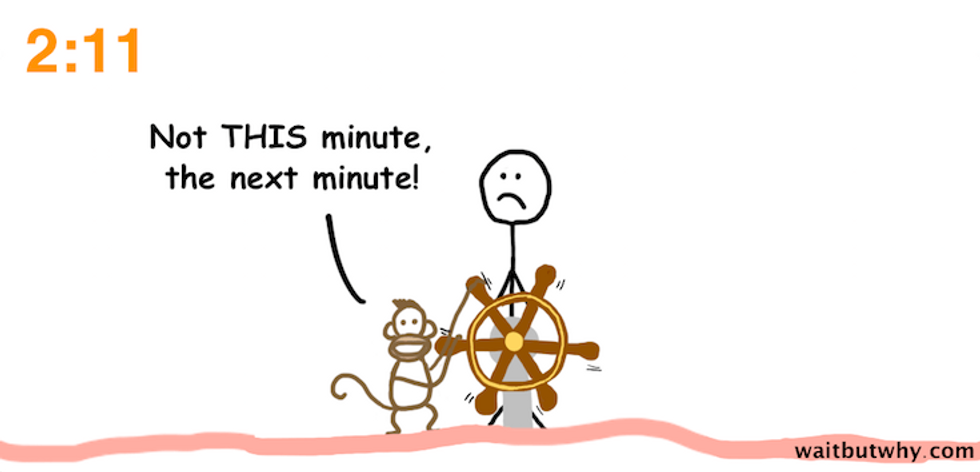
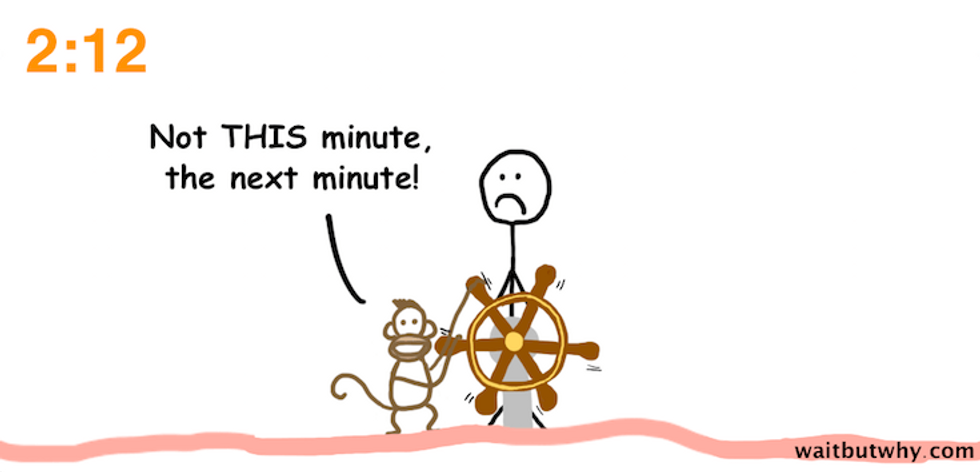
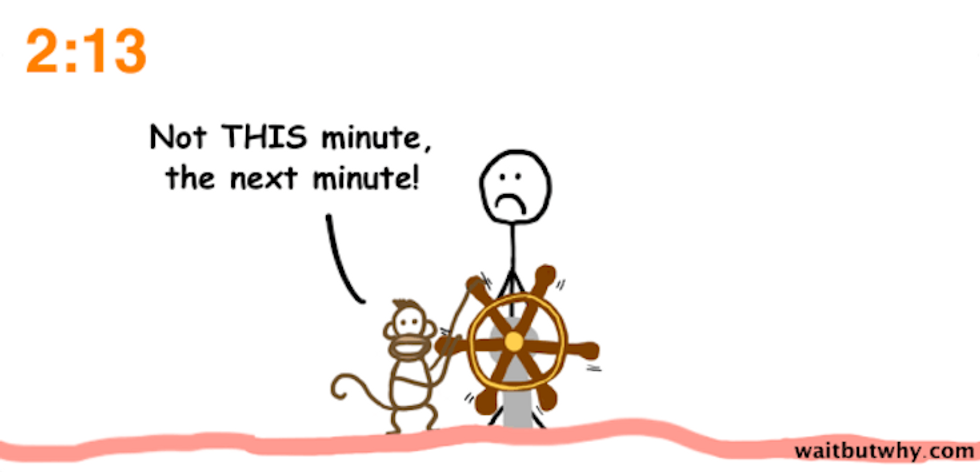
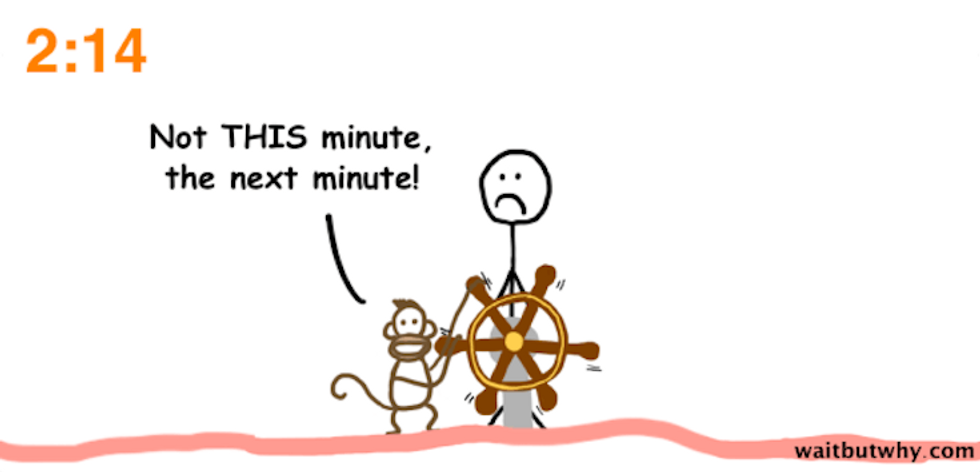
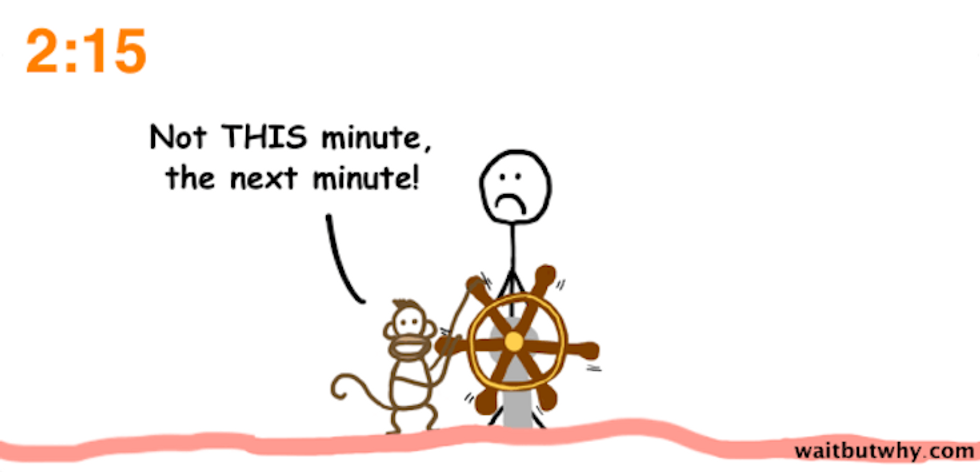
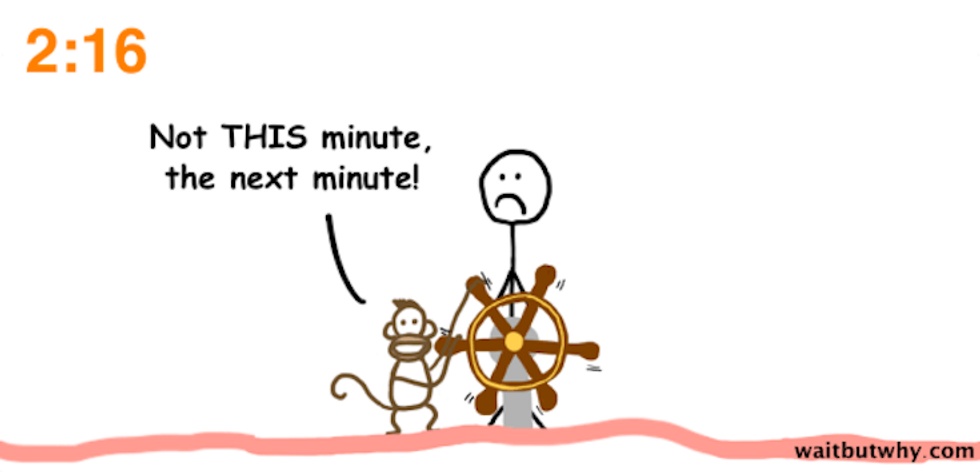
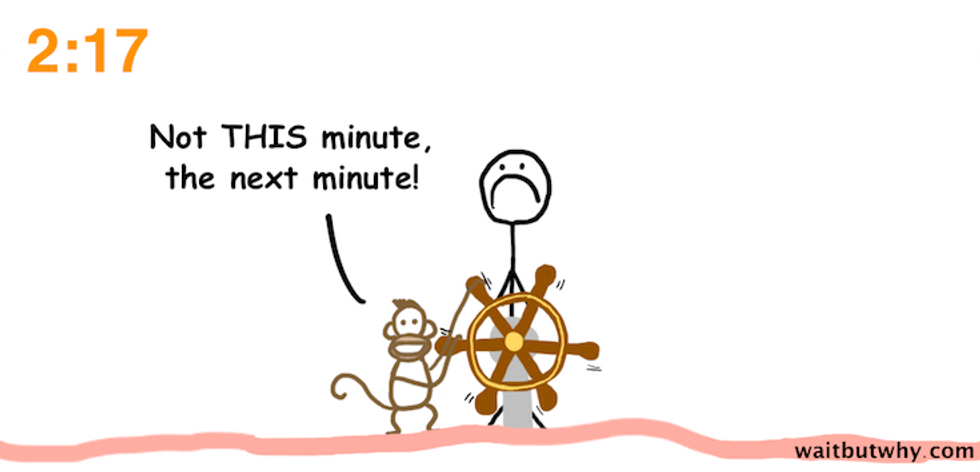
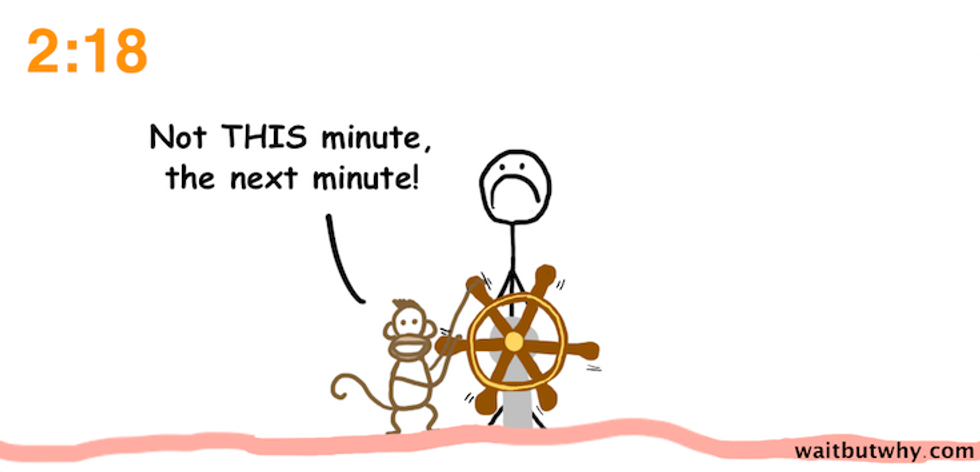
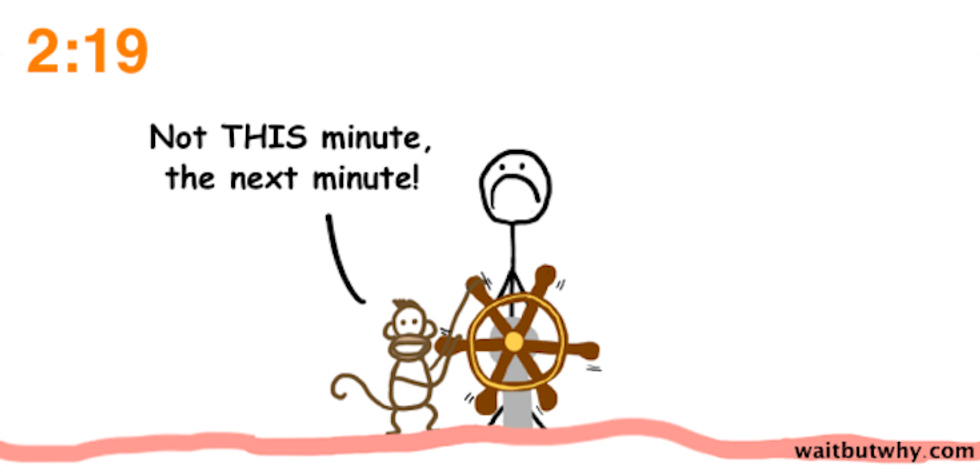
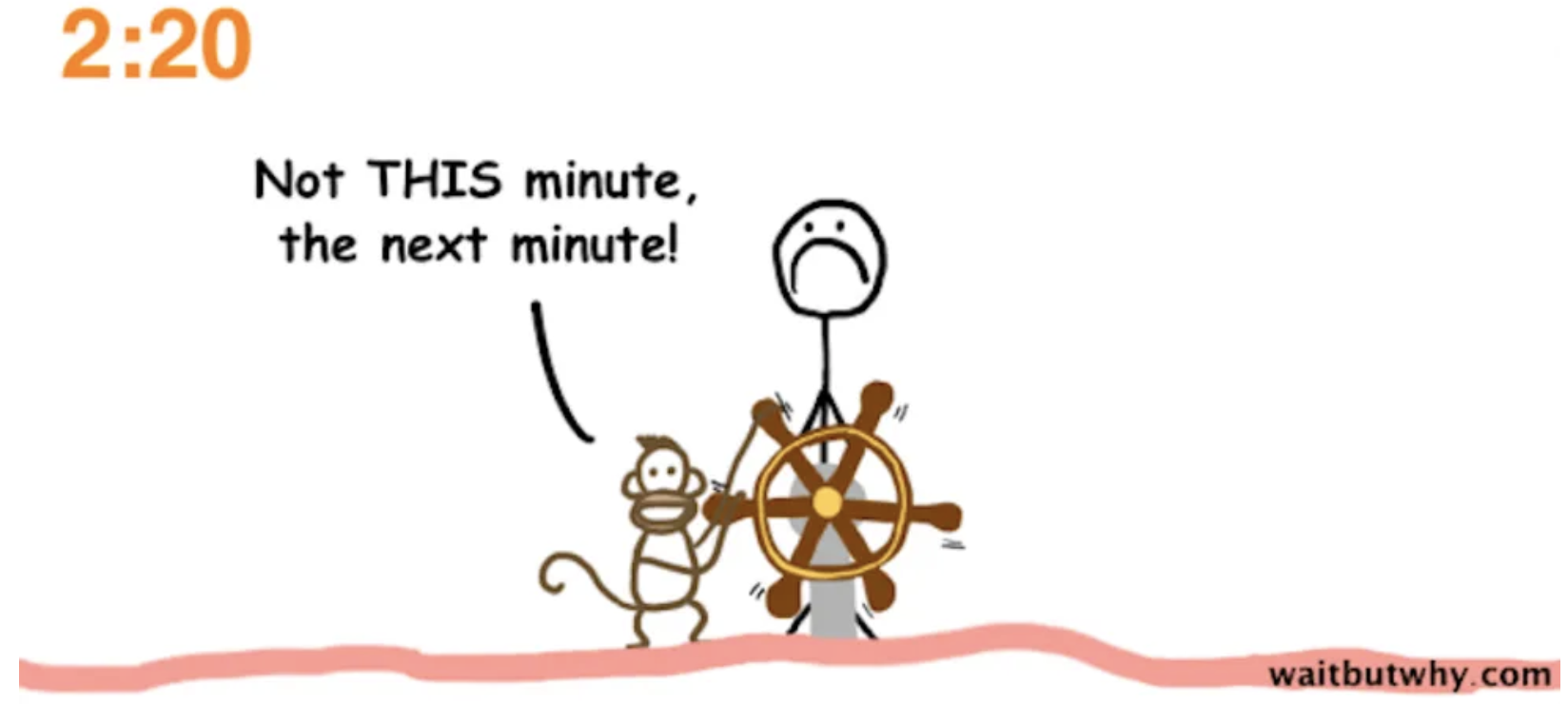
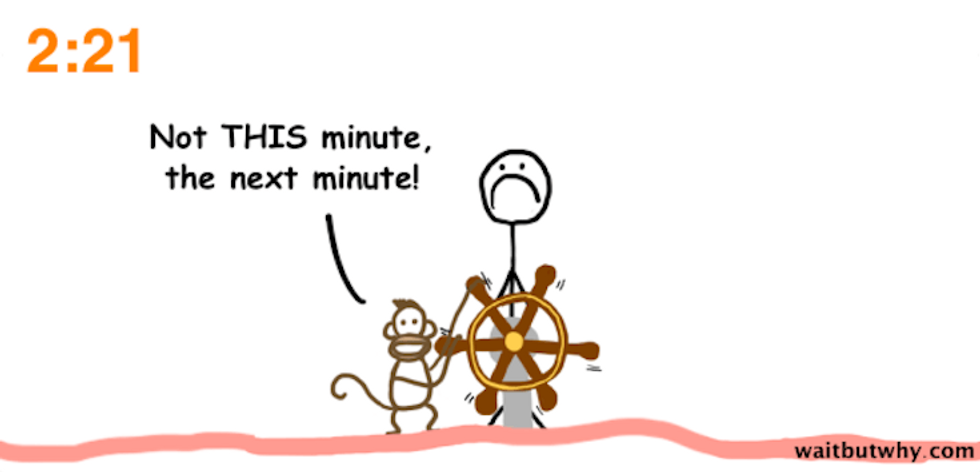
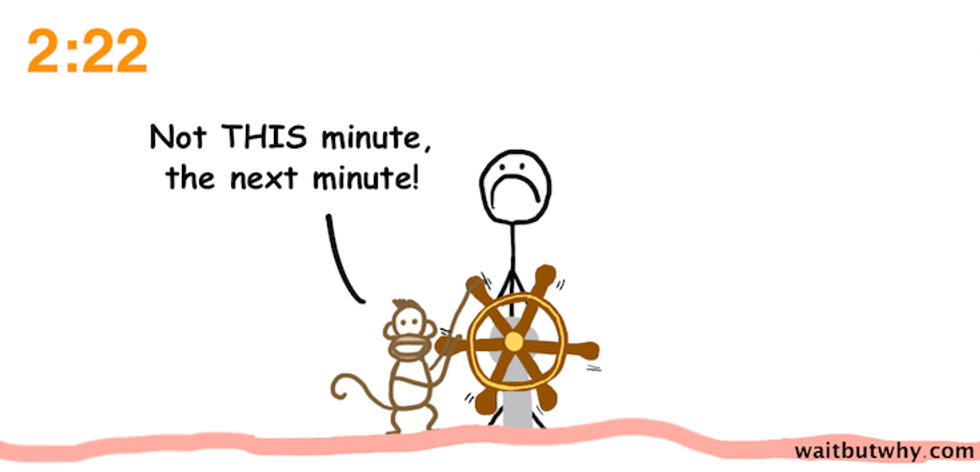
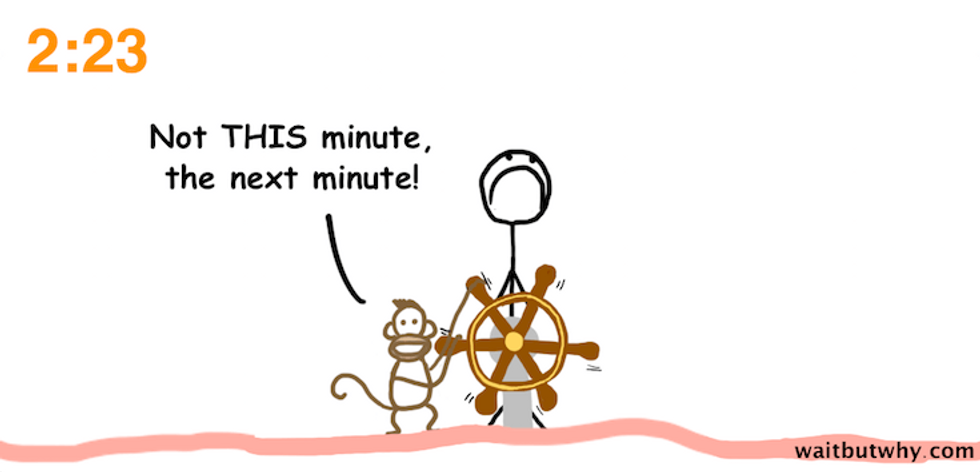
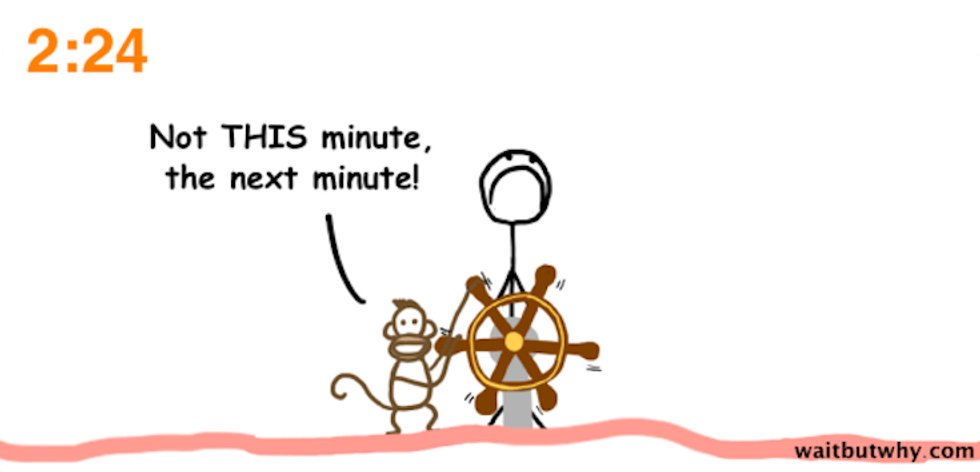
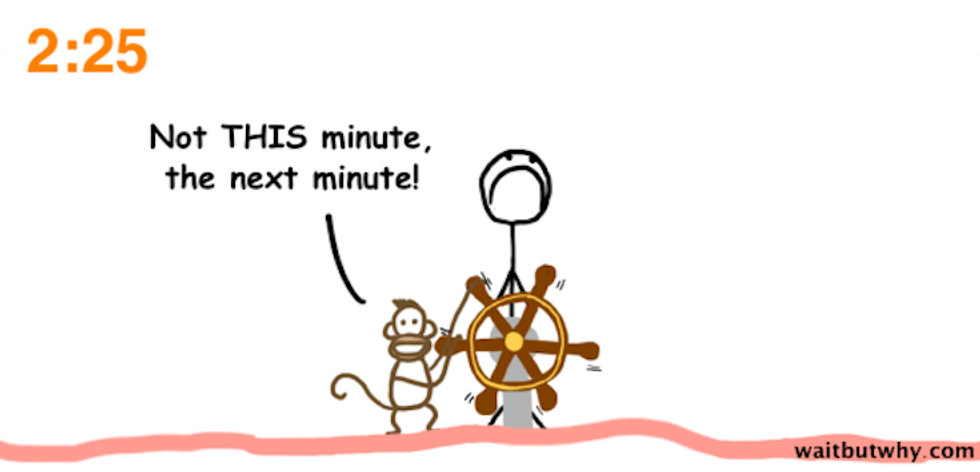
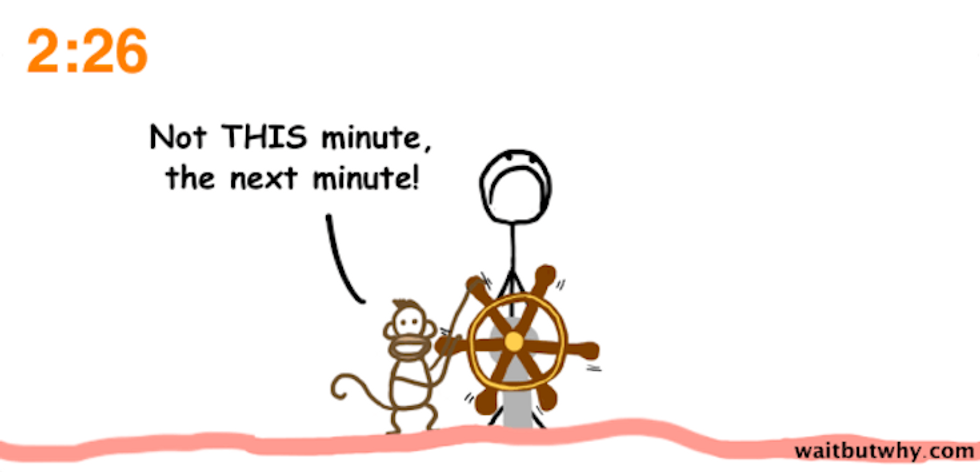
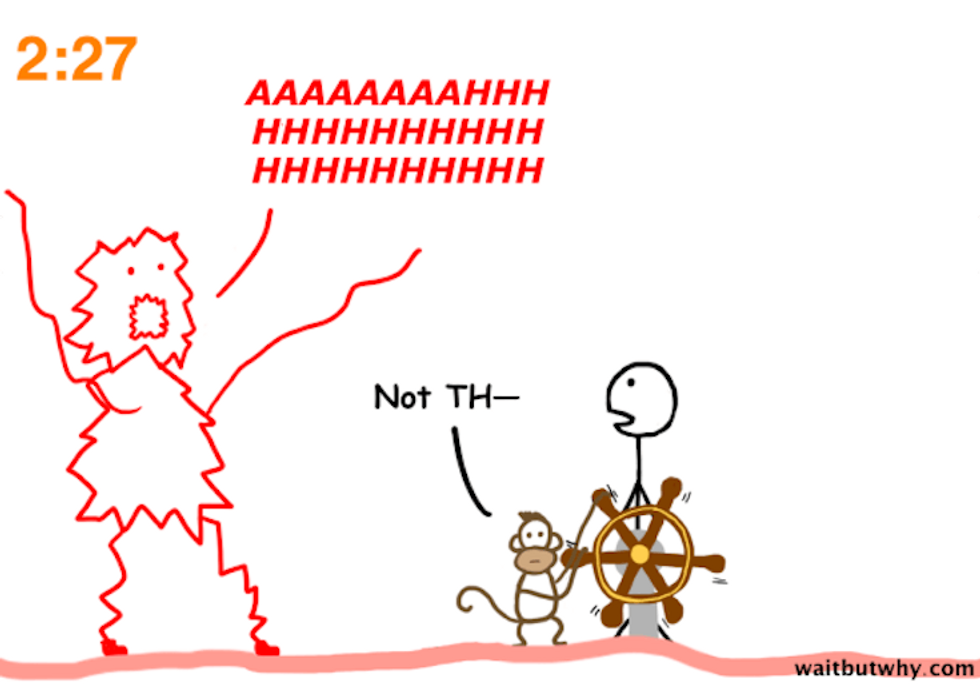
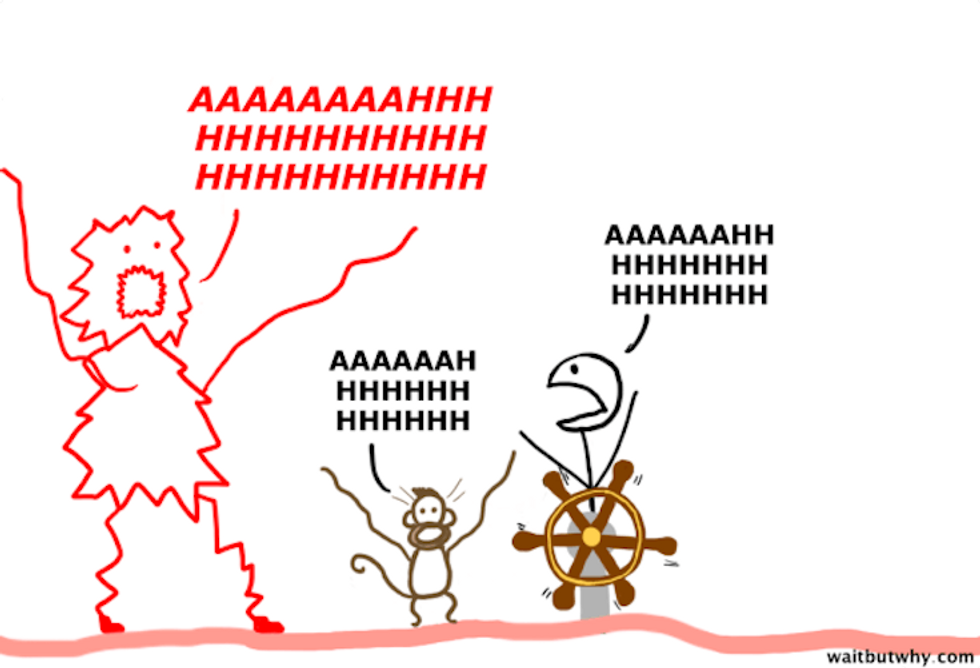
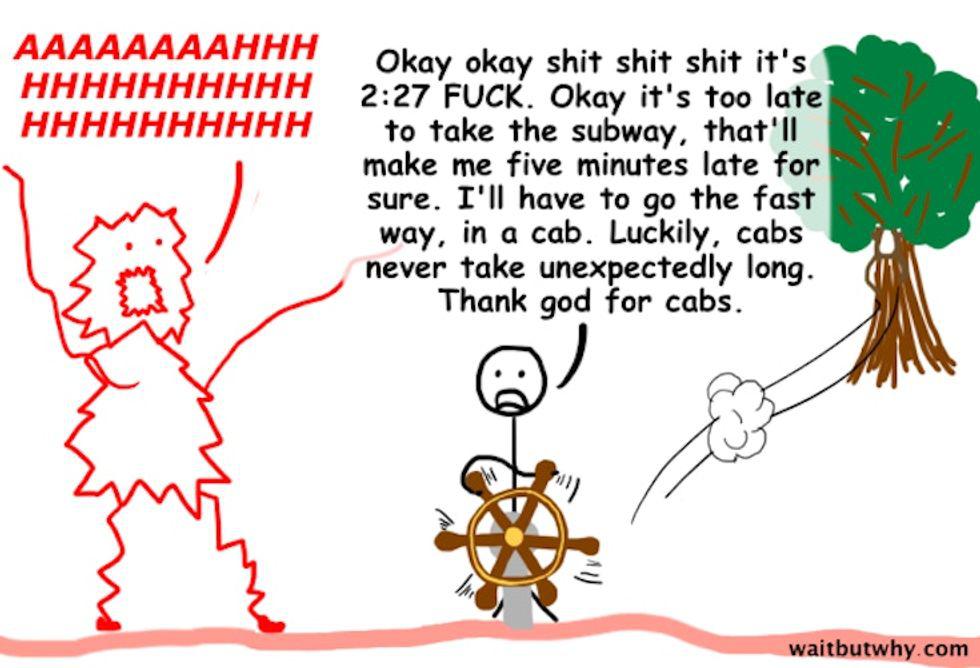
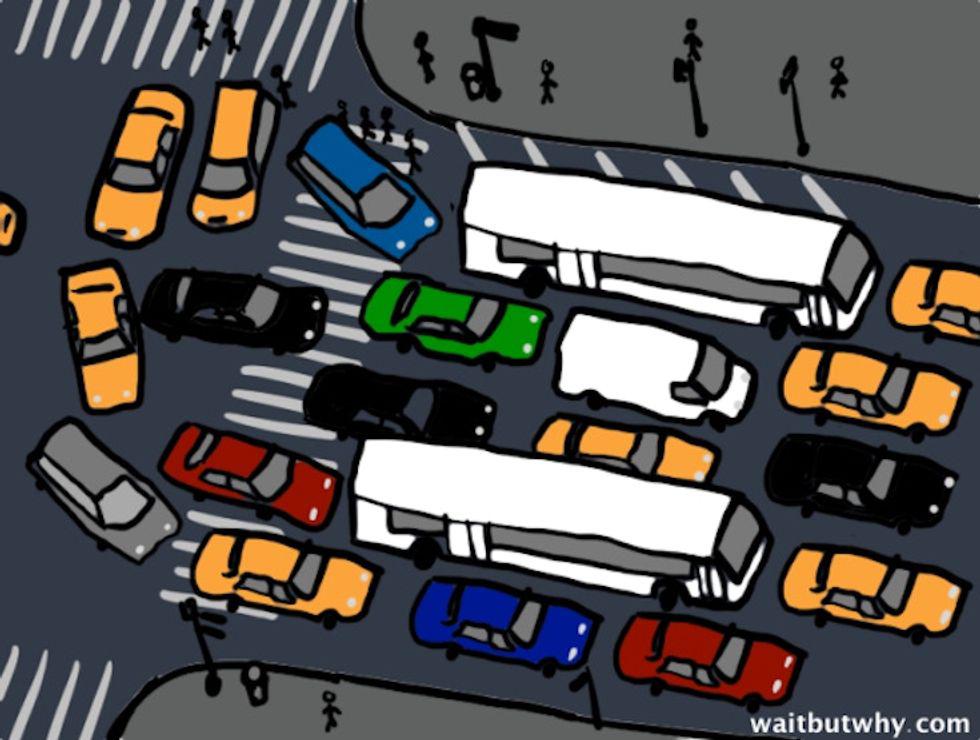
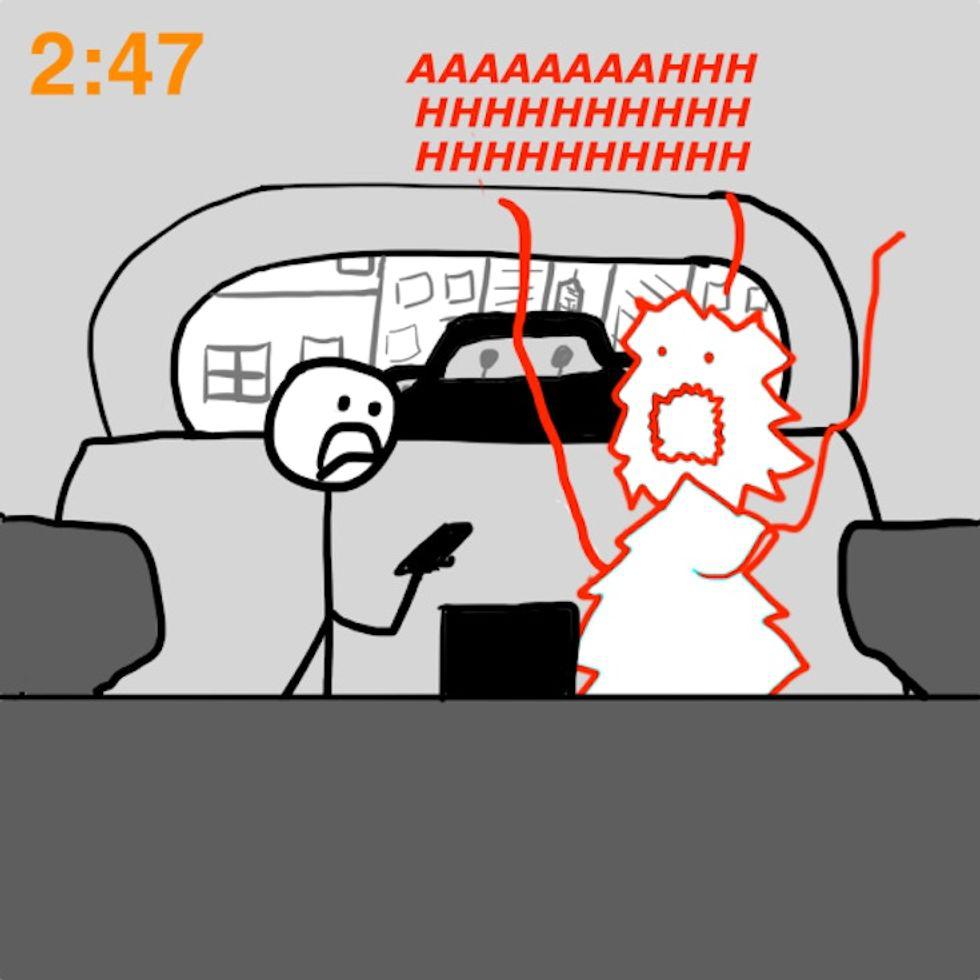


CLIPs are strange people. I’m sure each CLIP is insane in their own special way, and to understand how they work, you’ll usually have to get to some dark inner psychology.
For me, it’s some mix of these three odd traits:
1. I’m late because I’m in denial about how time works.
The propensity of CLIPs to underestimate how long things take comes out of some habitual delusional optimism. Usually what happens is, of all the times the CLIP has done a certain activity or commute, what they remember is that one time things went the quickest. And that amount of time is what sticks in their head as how long that thing takes. I don’t think there’s anything that will get me to internalize that packing for a weeklong trip takes 20 minutes. In my head, it’s eternally a five-minute task. You just take out the bag, throw some clothes in it, throw your toiletries in, zip it up, and done. Five minutes. The empirical data that shows that there are actually a lot of little things to think about when you pack and that it takes 20 minutes every time is irrelevant. Packing is clearly a five-minute task. As I type this, that’s what I believe.
2. I’m late because I have a weird aversion to changing circumstances.
Not sure what the deal is with this, but something in me is strangely appalled by the idea of transitioning from what I’m currently doing to doing something else. When I’m at home working, I hate when there’s something on my schedule that I have to stop everything for to go outside and do. It’s not that I hate the activity — once I’m there I’m often pleased to be there — it’s an irrational resistance to the transition. The positive side of this is it usually means I’m highly present when I finally do haul my ass somewhere, and I’m often among the last to leave.
3. Finally, I’m late because I’m mad at myself.
There’s a pretty strong correlation here — the worse I feel about my productivity so far that day, the more likely I am to be late. When I’m pleased with how I’ve lived the day so far, the Rational Decision-Maker has a much easier time taking control of the wheel. I feel like an adult, so it’s easy to act like an adult. But times when the monkey had his way with me all day, when the time rolls around that I need to stop working and head out somewhere, I can’t believe that this is all I’ve gotten done. So my brain throws a little tantrum, refusing to accept the regrettable circumstances, and stages a self-flagellating protest, saying, “NO. This cannot be the situation. Nope. You didn’t do what you were supposed to do, and now you’ll sit here and get more done, even if it makes you late.”
So yeah, that’s why I’m late. Because I have problems.
Don’t excuse the CLIPs in your life — it’s not OK, and they need to fix it. But remember: It’s not about you. They have problems.
This article originally appeared on 04.07.16







































